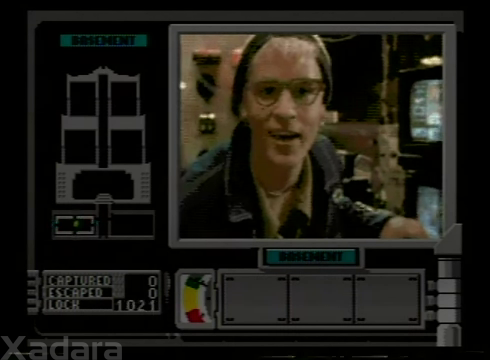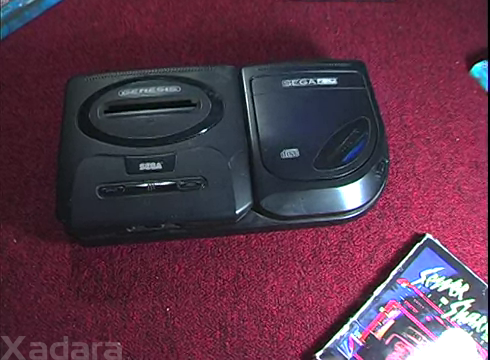The Sega CD was one of many CD based gaming devices produced in the early 1990’s to capitalize on the then-new CD-ROM technology which allowed for over 700 Megabytes of storage for game data, compared to the 2 Megabytes or so most traditional ROM cartridges allowed for at that time.
The problem is that this time period also coincided with the multimedia revolution – full motion video stored on CD technology was the trend at this time, and most every game made for a CD based system at this time was done in a style more like an interactive movie than a traditional video game.

Hi. This is a typical Sega-CD game, mostly video with mixed gameplay elements.
In this episode of The Angry Video Game Nerd, James Rolfe takes a look at, and pretty much tears apart, the Sega CD. From the infamous “You still don’t own a Sega CD?” commercial, the terrible video resolution, the power needs and of course, the games. Oh yes, James tears into as many games as he can here, and if you’re paying any attention you will notice immediately what I was talking about: Nonstop video, and that’s about it. Only a few games really follow the traditional format, but when they do, they aren’t so bad. Of course, Sonic CD gets mention, with that being a prime example of the way that the CD-ROM format should have been used with game consoles – something that wouldn’t come to pass until the Sega Saturn and the Sony Playstation a few years later.

The subject itself; namely a Model 2 Sega Genesis with a Model 2 Sega CD.
Final Rating: 3.5/5
This episode is one of the most proper “review” episodes of the series. James really just tears into the system and the games, and while he cracks jokes where he can, this time the focus really does seem to be the software itself, more than the characters rage. A rare treat, usually found in episodes where he deals with a more broad subject, like a game console or a series, rather than an individual title. Not bad by any means, but there isn’t anything here that’s too hilarious to make you come back and re-watch it too often.

It should be noted that while I say James “reviews” the console here, I only mean that in so far as that’s the focus of the episode. I don’t mean to say he seriously gave the console a “proper” review in any form — far from it, he only discusses the most common types of games on the system, using some prime examples. Whatever potential the hardware had it simply wasn’t taken advantage of, sadly, and so the system will forever be seen by many, especially in the United States, as a general failure with minimal software of note.